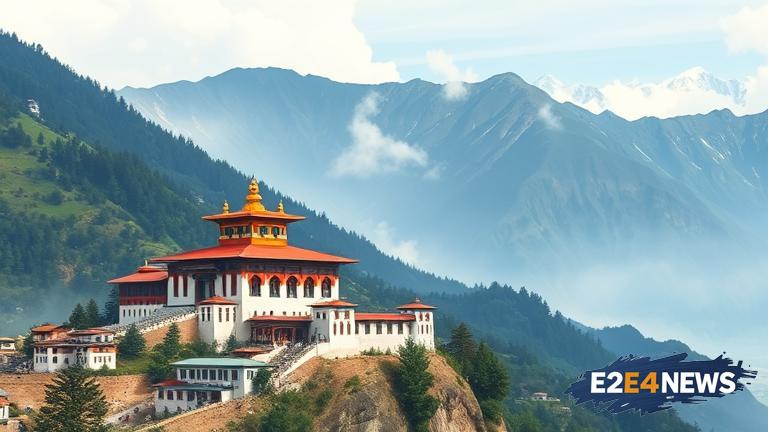Bhutan, a small country located in the Himalayas, has been experiencing steady economic growth in recent years. The country’s economy is primarily driven by the hydropower sector, which accounts for a significant portion of its revenue. The tourism industry is also a major contributor to the economy, with visitors drawn to the country’s unique culture and natural beauty. Agriculture is another important sector, with the country producing a range of crops including rice, maize, and potatoes. However, the country is heavily dependent on India for trade and economic support, which can make it vulnerable to external shocks. To address this, the government is working to diversify the economy and reduce dependence on India. This includes investing in new industries such as information technology and manufacturing. The government is also working to improve the business environment and attract foreign investment. Despite these efforts, the country still faces significant challenges, including a large trade deficit and a shortage of skilled workers. The government is also working to address issues related to poverty and inequality, with a focus on improving access to education and healthcare. In addition, the country is working to protect its unique culture and environment, with a focus on sustainable development. The government has implemented a range of policies aimed at reducing the country’s carbon footprint and promoting the use of renewable energy. Bhutan is also a member of the South Asian Association for Regional Cooperation (SAARC) and the Bay of Bengal Initiative for Multi-Sectoral Technical and Economic Cooperation (BIMSTEC), which provides opportunities for regional cooperation and trade. The country has also strengthened its ties with other countries, including China and Japan, which has helped to increase trade and investment. However, the country’s remote location and limited infrastructure can make it difficult to access international markets. To address this, the government is investing in new infrastructure, including roads and telecommunications. The country is also working to improve its financial sector, with a focus on increasing access to banking and financial services. Overall, Bhutan’s economy is making steady progress, but there are still significant challenges to be addressed. The government is working to diversify the economy, improve the business environment, and protect the country’s unique culture and environment. With its stunning natural beauty and unique culture, Bhutan has the potential to become a major tourist destination and a hub for sustainable development. The country’s commitment to sustainable development and environmental protection is reflected in its development philosophy of Gross National Happiness (GNH), which prioritizes the well-being of citizens and the environment. The government is also working to promote entrepreneurship and innovation, with a focus on supporting small and medium-sized enterprises (SMEs). In addition, the country is working to improve its education system, with a focus on increasing access to quality education and vocational training. The government is also investing in new technologies, including renewable energy and information technology, which is expected to drive economic growth and improve the quality of life for citizens. Furthermore, the country is working to strengthen its institutions and governance, with a focus on increasing transparency and accountability. The government is also working to promote private sector development, with a focus on supporting SMEs and encouraging foreign investment. Overall, Bhutan’s economic growth is expected to continue in the coming years, driven by a range of factors including hydropower, tourism, and agriculture. However, the country must continue to address its challenges, including its dependence on India and its limited infrastructure, in order to achieve sustainable and inclusive economic growth.
